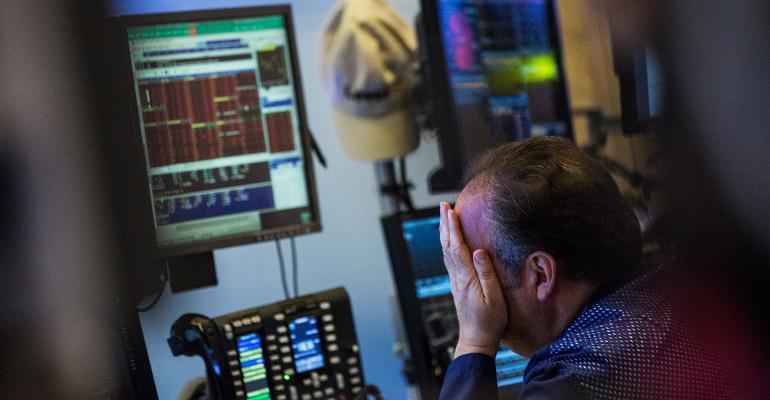By Jamie McGeever
LONDON, Aug 18 (Reuters) - As Wall Street and world stocks chalk up record high after record high, anxiety about a steep correction is mounting.
Yet all else being equal, the odds of say, a 20 percent fall are pretty much the same as another 20 percent raally. So why are investors more wary of and obsessed with the former rather than the latter?
Much can be explained by behavioral economics, in particular the "prospect theory" advanced by Daniel Kahneman and Amos Tversky in 1979 that people perceive gains and losses differently, so their investment decisions appear irrational.
Related to this is "loss aversion," the notion that people would rather avoid losses than experience equivalent gains.
This asymmetry is reflected in the behaviour of long-term investors since the financial crisis. Figures show that pension funds' allocation to equities as a share of their overall portfolios is now the lowest in years, and by some measures, decades.
On some levels, this is unsurprising. Pension and insurance funds are compelled to hold more bonds to meet capital adequacy rules. And an aging population and "baby boomers" are shifting out of equities into fixed income assets as they approach retirement between now and 2021.
But still, given the near nine-year bull run in stocks, you might have expected investors in recent years to be increasing their exposure to assets that are soaring in value. The S&P 500 has more than tripled since March 2009, and UK stocks have more than doubled.
According to Credit Suisse, U.S. private pension funds' direct allocation to equities is 26 percent of their total investments and has been below 30 percent every month since March 2008.
For the preceding 45 years it was always above 30 percent, reaching 48 percent in Q3 1987. That bullishness turned out to be hubris on 'Black Monday' when U.S. stocks plunged more than 20 percent on Oct. 19 that year, the worst day in Wall Street history.
Similarly, UK pension funds have seen their equity allocations decline over the past 15 years, according to Mercer. The fall accelerated after the crisis, with the current equity allocation of 29 percent half of what it was in 2008.
If long-term investors are effectively underweight equities, as these figures suggest, the more likely it is that the nine-year rally continues for some time to come.
What Goes Up ...
Demand wanes when valuations get stretched, but are stocks too expensive? That depends on your starting point. While world stocks may be up a third in barely 18 months and at a historic high, they're only up 10 percent from the pre-crisis peak. Japanese stocks have nearly tripled from their post-crisis low, but are still 50 percent below their peak in 1989.
Part of it can be explained by fear of the unknown. By definition, uncharted territory is unknown. And while potentially disastrous, a drop of say, 50 percent, would take the S&P 500 back to where it was only six years ago. Familiar territory.
The notion of "mean reversion", that prices will eventually move back toward the historical average, is also hard-wired into investors' psychology. So a 'melt down' scenario is somehow easier to visualize and rationalize than a 'melt up' scenario.
According to Kahneman and Tversky, when it comes to economics and finance, human beings act irrationally. They are willing to settle for modest gains even if they have a reasonable chance of getting more, but are prepared to take more risk in trying to limit their losses.
This suggests that people fear losses more than they crave an equivalent amount of gains. Seeing 20 percent of your portfolio go up in smoke would be more painful than a 20 percent rise in its value would be pleasurable.
They also found that investors are inclined to hold on to losing investments for too long in the hope that they recover. But sometimes they don't recover, and losses snowball.
Kahneman was awarded the Nobel prize for economics in 1992 and is considered one of the founding fathers of behavioral finance. He also recommended that investors check their portfolios once a quarter at most to prevent day-to-day market fluctuations from giving them palpitations.
Good advice, but unlikely to be heeded.
(Reporting by Jamie McGeever; Editing by Toby Chopra)






